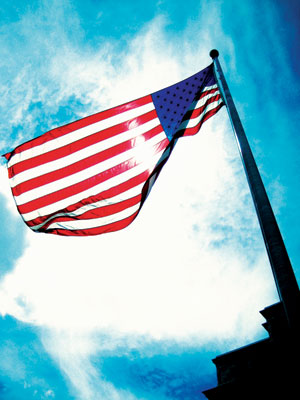All Nonfiction
- Bullying
- Books
- Academic
- Author Interviews
- Celebrity interviews
- College Articles
- College Essays
- Educator of the Year
- Heroes
- Interviews
- Memoir
- Personal Experience
- Sports
- Travel & Culture
All Opinions
- Bullying
- Current Events / Politics
- Discrimination
- Drugs / Alcohol / Smoking
- Entertainment / Celebrities
- Environment
- Love / Relationships
- Movies / Music / TV
- Pop Culture / Trends
- School / College
- Social Issues / Civics
- Spirituality / Religion
- Sports / Hobbies
All Hot Topics
- Bullying
- Community Service
- Environment
- Health
- Letters to the Editor
- Pride & Prejudice
- What Matters
- Back
Summer Guide
- Program Links
- Program Reviews
- Back
College Guide
- College Links
- College Reviews
- College Essays
- College Articles
- Back
JFK: The President
Though JFK had came into office as the successor of the Cold War president Dwight D. Eisenhower, his youthful charisma and Hollywood looks symbolized the transition to American idealism in the home of the mid-U.S. century. The Election of 1960 had already marked JFK’s distinctness from the average American President, as one of the first featured candidates in the first televised presidential events. Compared to the stocky Eisenhower loyalist, Nixon, who was more known at the time, Kennedy’s advisers relied on the young candidate’s youth, intelligence (later on a partial recipient of the Pulitzer Award), and war hero status to gain popularity with the voting audience. Upon entry into Office, JFK had initially continued the anti-communist agenda of his predecessor, though eventually began focusing on liberal domestic issues, such as the revival of Women rights (Equal Pay Act), Social Security Act, Higher Education Act, Peace Corps, and the Space Program (NASA.) Another sign of America’s presidential transition appeared in JKF’s efforts to ease U.S.-Soviet Tensions in the Cold War, unlike earlier aggressive containment efforts. In order to seize initiative of the war, JFK increased military spending; build of the weaponry system, and support of Ngo Dinh Diem’s militant regime, though that eventually disintegrated. In an attempt to halt revolutionary movements in another foreign territory, Cuba, U.S. participated in the Bay of Pigs, which, however, ultimately failed with Kennedy’s hesitance with Air Force support. The Cuban Missile Crisis revealed a change in presidential politics, as on the brink of nuclear collision, JFK demanded a removal and blockade of missiles in exchange for destroying U.S. missiles in Turkey. This confrontation in cold war politics demonstrated JFK’s later desire to rethink hostile relations with the Soviet Union, even planning to create peaceful coexistence and diplomacy with the Limited Nuclear Test-Band Treaty. However, JFK’s political vision was implemented on November 22, 1963 when he was assassinated. Nevertheless, JFK’s influence on America had extended to empower the influence of America’s youth and middle class, and into a new age that unraveled postwar consensus and began political idealism.

Similar Articles
JOIN THE DISCUSSION
This article has 0 comments.

Was JFK a visionary of a new future or just a modern cold warrior?